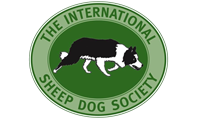Eye scheme
Working to reduce hereditary eye disease across all dog breeds.

Working to reduce hereditary eye disease across all dog breeds.




There are many types of hereditary eye disease, both congenital (conditions that exist from birth or soon after birth) and non-congenital (conditions that develop later in life), that affect dogs. Many of these conditions can have serious effects on health and welfare, causing pain, blindness, or the need for lifelong medication. Testing your dog's eyes will allow you to take action to tackle disease progression and make informed decisions around breeding.
We have created a list of breeds known to suffer from one or more of the inherited eye diseases the Eye Scheme examines for; (formerly known as Schedule A).
Our Eye Scheme appoints a panel of 38 expert veterinary ophthalmologists around the United Kingdom who carry out clinical eye examinations to identify inherited and non-inherited conditions. Upon completion of the exam, you will receive a CHS Eye Examination Certificate with each condition recorded as Clinically Unaffected (does not have the condition) or Clinically Affected (does have the condition), except for the results of a gonioscopy which are graded.
Our scheme is open to all dogs, including pedigree and crossbreed dogs, and they do not need to be Kennel Club registered.
Anyone planning to breed dogs should carry out clinical eye examinations for both parents, and use these results to make informed breeding decisions.
Litter screening
We also offer litter screening for congenital hereditary conditions when the puppies are 5 to 12 weeks old. When organising and attending a litter screening, you will need to provide the following details:
Owner details
Parent details
Number of puppies born
Date of any previous examinations
The microchip number of each puppy (all puppies being litter screened need to be microchipped before they are examined)
After the examination, you will receive a litter screening certificate with the results on. The results of litter screening of Kennel Club registered dogs will also be available on the Kennel Club database.
Some inherited eye diseases can be seen in puppies aged between 5 and 12 weeks old, view our litter screening checklist to see which breeds should be screened at this age.
You can book an appointment directly with a BVA-appointed eye panellist either by:
Using our Find an eye panellist page
Booking to attend an eye testing clinic – view eye testing clinic dates and locations for July to September 2025
Let your eye panellist know that you are booking an appointment as part of the CHS Eye Scheme. When attending the examination, please bring any relevant registration documents with you.
A routine eye examination for one dog starts from £69.50 (inc. VAT).
Litter screening for puppies 5-12 weeks of age starts from £44 (inc. VAT).
A full breakdown of costs can be found on our Submissions Fees page.
Immediately following the eye examination, the panellist will complete the eye certificate, giving you a copy with the results on and sending another copy to the CHS team.
If your dog is registered with the UK Kennel Club, the results will also be published on the Kennel Club website.
Litter screening appeals: Any appeal must be notified to CHS and as soon as possible so that the whole litter can be re-examined before the puppies reach 12 weeks of age.
Eye examination appeals: Any appeal against the results must be lodged with the CHS team within 30 days of the examination.
Further information on the appeals process can be found here.
Once the examination is complete, the expert panellist will issue a CHS Eye Examination Certificate which records the inherited eye disease status relevant to the dog being examined. The results are recorded as Clinically Unaffected (does not have the condition) or Clinically Affected (does have the condition) except for the results of gonioscopy which are graded.
The results of UK Kennel Club registered dogs will be published on the Kennel Club Health Test Results Finder if a specific condition is known to be inherited and certified as such.
All dogs, including crossbreeds are at risk of suffering from eye disease.
Common breeds at risk of eye disease are:
Border Collie
Cocker Spaniel
English Springer Spaniel
French Bulldog
Golden Retriever
Labradoodle
Labrador Retriever
Miniature Schnauzer
Pug
Many other breeds suffer from eye disease. Find out what health tests are recommended for your breed on the Kennel Club website.

Visit our CHS help centre to see answers to frequently asked questions.
If you can't find your answer there, you can contact our expert in-house CHS team via email: [email protected]